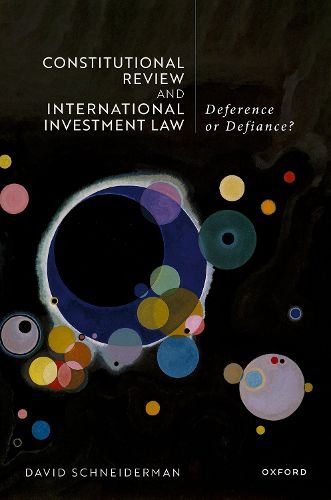Readings Newsletter
Become a Readings Member to make your shopping experience even easier.
Sign in or sign up for free!
You’re not far away from qualifying for FREE standard shipping within Australia
You’ve qualified for FREE standard shipping within Australia
The cart is loading…






The revival of interest in comparative constitutional studies, alongside the rise of legal limitations to state action due to investment treaty commitments, calls for a unique analysis of both investment law and comparative constitutional law. The unresolved tensions that arise between the two are only beginning to be addressed by judges. Are courts resisting these new international limitations on their constitutional space? Constitutional Review and International Investment Law: Deference or Defiance? pioneers this discussion by examining how a selection of the highest courts around the world have addressed this potential discord. A comparison of decisions in the US, Europe, Colombia, Indonesia, Israel, and elsewhere reveals that, rather than issuing declarations of constitutional incompatibility, courts are more likely to respond to constitutional tensions indirectly. Their rulings adopt stances that range from hard deference (such as the Peruvian Constitutional Court viewing constitutional law and investment law as entirely compatible) to soft defiance (for example the Colombian Constitutional Court requiring only modest renegotiation of some treaty terms so that they are constitutionally compliant). Readers learn that judges are not aiming to undermine the investment law regime but are seeking to mitigate constitutional collision.
$9.00 standard shipping within Australia
FREE standard shipping within Australia for orders over $100.00
Express & International shipping calculated at checkout
The revival of interest in comparative constitutional studies, alongside the rise of legal limitations to state action due to investment treaty commitments, calls for a unique analysis of both investment law and comparative constitutional law. The unresolved tensions that arise between the two are only beginning to be addressed by judges. Are courts resisting these new international limitations on their constitutional space? Constitutional Review and International Investment Law: Deference or Defiance? pioneers this discussion by examining how a selection of the highest courts around the world have addressed this potential discord. A comparison of decisions in the US, Europe, Colombia, Indonesia, Israel, and elsewhere reveals that, rather than issuing declarations of constitutional incompatibility, courts are more likely to respond to constitutional tensions indirectly. Their rulings adopt stances that range from hard deference (such as the Peruvian Constitutional Court viewing constitutional law and investment law as entirely compatible) to soft defiance (for example the Colombian Constitutional Court requiring only modest renegotiation of some treaty terms so that they are constitutionally compliant). Readers learn that judges are not aiming to undermine the investment law regime but are seeking to mitigate constitutional collision.